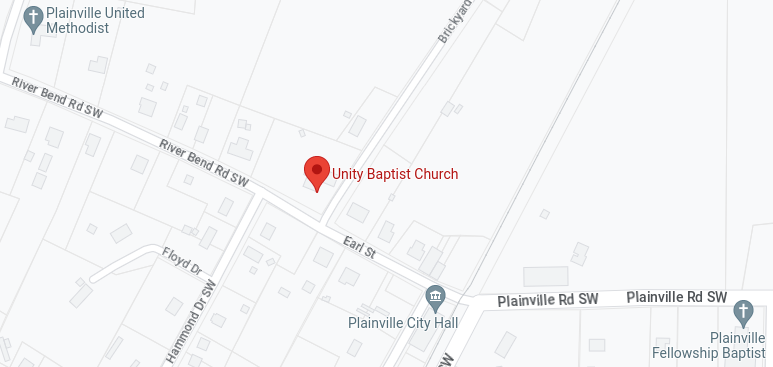May 22, 2016 | text: Luke 10:30-37
The Parable of the Good Samaritan is an answer Jesus gave to a question. In Luke 10 a certain lawyer asked what he must do to inherit eternal life. When Jesus asked about what was written in the law, he very wisely answered “Love God with all your heart, soul, strength and mind and also love your neighbor as yourself.” Jesus told him he answered well, adding “Do this and you will live.” But this guy’s a lawyer. He looks for a loophole, as lawyers are apt to do. He asks Jesus “Who is my neighbor?” and Jesus responds with what we know as the Parable of the Good Samaritan beginning in Luke 10:30.
Be a Good Neighbor. “Like a good neighbor, State Farm is there.” Imagine you are looking for help on moving day. If you have 700 friends on Facebook you might get three people to actual show up. It’s good to have fans, it’s good to be well networked, but a true friend that stays closer than a brother… those are rare and hard to come by. No matter how many “friends” a person has you probably have one or two best friends that will show up no matter what; the kind that help you move, that mow the grass while you’re in the hospital, that would dare visit you in jail. Think back to Job’s friends. Before they criticized him and accused him of having some secret, unconfessed sin, they say quietly with him for three days in the rubbish pile outside the city walls. They may have had their faults but they were there with their friend. They showed up. The priest and the Levite in this parable saw a need, but they failed to show up. Ministry begins with meeting the needs of people that are in need. “Go and be filled” doesn’t cut it; you can’t share the Gospel with people that are hungry. When a crowd of 5,000 men plus women and children came out to a desolate place to hear Jesus, he taught them all day long and then fed them rather than send them away.
The Church has Two Commitments: The first is to our people. We edify the body, we build up and equip believers, in order to do the work of ministry. I spoke very highly of Understanding, Preparing for, and Practicing Christian Worship (Franklin Segler) while taking a seminary class on Public Worship yet not one person has asked to borrow this book since I finished with it. No judgement, but it is available. The seeker sensitive movement was all about removing elements of Christian worship that non-Christians, first time visitors and seekers, may have had trouble understanding. The Christian worship service is primarily a group activity for Christians. Evangelism is a function of the church but not the primary purpose for the Sunday morning worship service. We sing together, prayer together, give together and are fed from God’s Word together – so that together we can be the body of Christ. We exhort one another to good works. The second commitment of the church is to all people. The second thing on our list is not of lesser importance. If we fail at the second there is no purpose for the first. Last week was Pentecost Sunday. The church was added to daily those that were being saved. They met together to hear the Apostles preach and teach and they worked together to ensure all the needs were met within their community. We are building the Kingdom; what are we building it out of? Jesus came to seek and to save that which was lost. The disciples didn’t work for Jesus, even during his earthly ministry; they did the work of Jesus. The 11 a.m. worship service may not be the time for evangelism, but every other hour of every other day could be!
(This link is to the blog post I referenced Wed. evening and in this service.)
Do no harm. While modern physicians do not take the historic hippocratic oath, we are all familiar with the promise to do no harm. That must be our oath. We must swear to that principle to ourselves and to God whom we serve. We carry the Gospel, the good news that Jesus himself brought from God the Father, to the people he loves and made in his image. Many do not want to hear that news. They will reject that news and at times oppose those of us that share it. But remember why Jesus came – to seek and to save that which was lost. Remember also that Jesus was hated, conspired against, tried falsely and crucified… by the ones he came to seek and to save. When Peter pulled a sword, willing to fight and die, Jesus told him to put it away. He prayed from the cross for those that were crucifying him: “Father forgive them, for they know not what they do.” There are going to be people we can’t help, there will certainly be people that do not want our help – but at all cost we must not hurt them either. For instance: We do not believe in abortion. At the same time we are not giving out the names and addresses of abortion doctors either. There have been at least 11 murders since 1990 and hundreds of bombings and arsons at abortion clinics since the late 70’s. Jesus did not come to judge the world. He came to seek and to save; that is the work of Jesus that we must be doing. He will come again to judge and vengeance belongs to God only (Romans 12:19 quoting Deuteronomy 32:35).
Jesus prayed for the very people that were crucifying him. Paul tells us in Philippians 2 to have the same mindset. The bar has been set pretty high. The way we reach it is together. We are called together as the Church and have been given his Word and his Spirit. We are instructed on how to choose pastors, deacons and teachers. We must be deliberate and intentional about our words and actions and meeting together as the church is how we build up the body and encourage one another to good works. We must be deliberate and intentional about answering our call and doing the work of ministry because there is so very much at stake.







